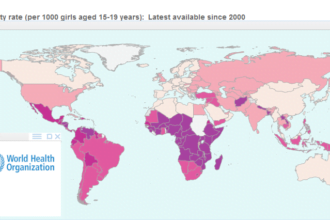In a few short days, the presidential race will conclude, forever determining the fate of Mitt Romney and President Obama. With the weight of this decision comes potentially heady change for the Affordable Care Act (ACA). Despite having made laudable healthcare delivery advances in the state of Massachussets, former Governor Romney wants to appeal ACA. And in the event that President Obama is voted into a second term in office, one wonders how the U.S.
In a few short days, the presidential race will conclude, forever determining the fate of Mitt Romney and President Obama. With the weight of this decision comes potentially heady change for the Affordable Care Act (ACA). Despite having made laudable healthcare delivery advances in the state of Massachussets, former Governor Romney wants to appeal ACA. And in the event that President Obama is voted into a second term in office, one wonders how the U.S. can continue to provide millions of stimulus dollars at a time when we are poised atop a fiscal cliff? On a positive note for both Republicans and Democrats, a single unifying mantra continues to exist – and it is the need to bend the cost curve in healthcare.
From a global perspective, the authors of this New England Journal of Medicine article, point out that a move in health spending from 18% to 25% of the gross domestic product (GDP) with a correlate increase in federal spending to 40% is not sustainable. Furthermore, continuing on this trajectory will only serve to reduce funding for education and infrastructure while accelerating national debt. In order to effectively reign in this skyrocketing cost, the following recommendations have been made:
- Promote payment rates within global targets
- Accelerate use of alternatives to fee-for-service payments
- Use competitive bidding for all commodities
- Require exchanges to offer tiered pricing and be active purchasers
- Simplify administrative systems for providers and payers
- Require price transparency
- Make better use of non-physician providers
In order to improve quality and reduce cost at the local level, many hospitals and healthcare systems have been actively engaged in Lean methodology, with roots in the Toyota production system best known for promoting efficiency. In an effort to determine the impact of Lean in healthcare, the Agency for Healthcare Research and Quality (AHRQ) recently commissioned the first independent comparative study of Lean implementation among organized delivery systems. In Stephen Garfinkel’s review of the study, he notes that kaizens, or rapid cycle improvements, were the most commonly utilized form of the Lean technique. By engaging employees and other stakeholders in the kaizen method, upstream, downstream and parallel processes are considered when examining a specific process in a value stream.
While kaizen events were generally rooted in process improvement, the study found that capital and operating costs can vary widely. Without a concrete method for calculating an activity’s cost-benefit ratio, healthcare leaders, instead, chose to adopt Lean for its malleability. And the majority – both CEOs and staff – were pleased with the results since it provided an opportunity for problem solving, employee collaboration across ranks and units, efficiency improvements, opportunities to spend more time with patients and improved patient experience.
Losing money for the first time in 2002, the newly appointed Virginia Mason Medical Center CEO, Dr. Gary Kaplan, knew that change needed to occur at his institution. As seen in the PBS special below, Dr. Kaplan states, “the case for change is compelling. The resistance to change and the anchoring in the status quo is still very strong. And so that’s our objective here. We talk at Virginia Mason about transforming health care. And some might say, well, it’s delusions of grandeur. And, really, all we really want to do is show what’s possible.”
![]()







